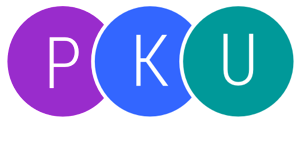Phenylketonuria also called PKU, is a rare inherited disorder that causes an amino acid called phenylalanine to build up in the body. PKU is caused by a defect in the gene that helps create the enzyme needed to break down phenylalanine.
Without the enzyme necessary to process phenylalanine, a dangerous buildup can develop when a person with PKU eats foods that contain protein or eats aspartame, an artificial sweetener. This can eventually lead to serious health problems.
For the rest of their lives, people with PKU- babies, children, and adults - need to follow a diet that limits phenylalanine, which is found mostly in foods that contain protein.
Babies in the United States and many other countries are screened for PKU soon after birth. Recognizing PKU right away can help prevent major health problems.
Symptoms
Newborns with PKU initially don't have any symptoms. However, without treatment, babies usually develop signs of PKU within a few months.
PKU signs and symptoms can be mild or severe and may include:
- A musty odor in the breath, skin, or urine, caused by too much phenylalanine in the body
- Neurological problems that may include seizures
- Skin rashes ( eczema)
- Fair skin and blue eyes, because phenylalanine cant transforms into melanin - the pigment responsible for hair and skin tone
- Abnormally small head (microcephaly)
- Hyperactivity
- Intellectual disability
- Delayed development
- Behavioral, emotional, and social problems
- Psychiatric disorders
Severity varies
The severity of PKU depends on the type.
- Classic PKU: The most severe form of the disorder is called classic PKU. The enzyme needed to convert phenylalanine is missing or severely reduced, resulting in high levels of phenylalanine and severe brain damage.
- Less severe forms of PKU: In mild or moderate forms, the enzyme retains some function, so phenylalanine levels are not as high, resulting in a smaller risk of significant brain damage.
But most children with the disorder still require a special PKU diet to prevent intellectual disability and other complications



Comments
Post a Comment